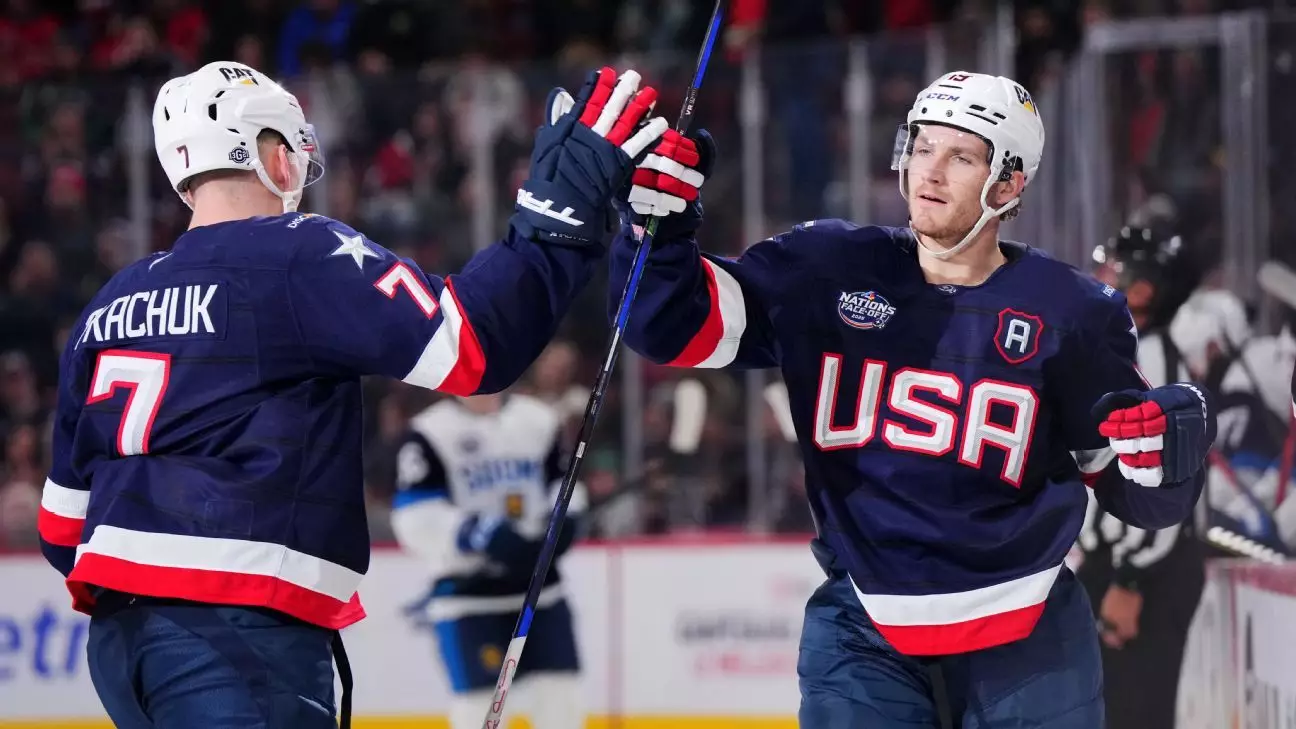In a world where sports often intertwine with national pride, the NHL 4 Nations Face-Off championship game between Canada and the United States brought forth not only an exhilarating hockey contest but a backdrop of political tension and discourse. The mention of President Donald Trump stirred conversations that transcended the rink, turning expectations of rivalry into deeper discussions about national identity, unity, and, ironically, division.
Hours before the puck dropped in Boston, the focus of Team USA players was not just on their impending match against Canada but also on a significant call from President Trump. For many players like Vincent Trocheck, this was more than just a casual chat; it was a noteworthy moment in their athletic careers. Trocheck described the experience as surreal, emphasizing how it felt to have a sitting president reach out to a hockey team. The excitement was palpable, with fellow player J.T. Miller expressing his disbelief and joy at receiving support from the highest office of the land.
The players’ reactions underscored a broader sentiment among athletes: the motivation derived from such interactions can be immense. It highlights a unique aspect of sports where personalities, politics, and performance can harmonize to amplify enthusiasm and morale. However, this interaction was layered with underlying implications regarding the ongoing political climate and national identity.
Amidst the camaraderie, discussions of politics inevitably emerged. President Trump had previously commented on Canada potentially becoming the “51st state,” an assertion that ignited debates across media platforms and among fans. During interviews, Team USA players navigated this sensitive topic carefully. While it was clear that the amusing suggestion of Canada’s annexation brought levity to the situation, the actual ramifications of such statements were no laughing matter.
As players reflected on the phone call from Trump, a collective sense of unity presented a stark contrast to the serious implications behind the humor in political commentary. Zach Werenski, a defenseman for Team USA, noted how this topic was conspicuously absent from their conversation with the president, perhaps indicating a desire to focus on the sport rather than political division.
This championship was not merely another hockey event; it was a microcosm of the political and cultural clashes prevalent between Canada and the United States. Early games had set the tone, with fans responding heatedly during national anthems and brawls erupting on the ice. In the first encounter, the intensity was palpable as players quickly lost their temper, exemplifying how deeply the rivalry is woven into the fabric of both nations’ identities.
Coach Jon Cooper of Team Canada projected a sense of duty over politics, asserting that while discussions about political relationships may lie outside the locker room, the primary focus remained on performance and representation. His comments reflect a broader trend where sports act as a platform for individuals and nations to express their identities and aspirations, even amidst political strife.
The NHL 4 Nations Face-Off ultimately serves as a reminder of how sports can become intertwined with national narratives. While both teams came to compete, they also bore the weight of their nations’ expectations and political histories. As players grappled with the complexities of national pride and the surreal experience of competing on such a grand stage, it became evident that their participation transcended the game itself.
Through the lens of this championship, we witness a compelling dynamic: athletes, political leaders, and fans engaging in a complex dance around issues of identity, unity, and rivalry. The intersection of hockey and politics, particularly in the context of Trump’s commentary and national discussions, reflects the broader societal implications that sports can evoke. In a world eager for reconciliation and understanding, perhaps it is through such moments on the ice that we can find common ground amid discord. As the dust settles on the competition, one thing remains clear: sports have an unmatched power to connect us, ignite passions, and shape the narratives of our time.


Leave a Reply